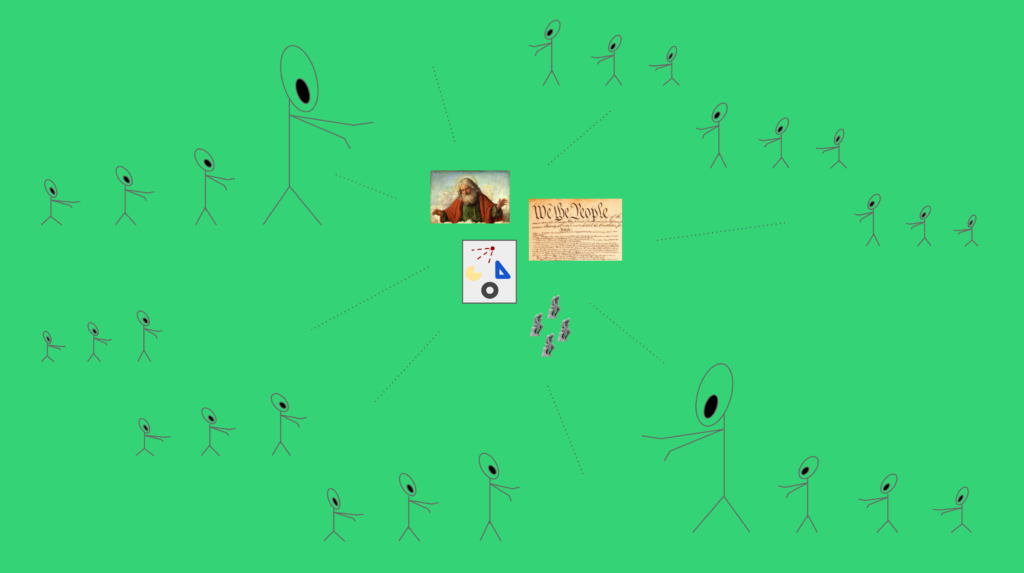
In a way, religion, morality, ethics, rituals, traditions, constitutions, and the law are very similar: they are all containers of behavioral rules.
“Be honest”, “do not kill”, “be meek”, “respect your elders”, “be loyal”, “do not commit adultery”, “there is only one God”, or more generally, “do X”, “do not do Y”, and “the truth is Z” are all, directly or indirectly, behavioral rules.
Some behavioral rule packages come in the form of pure beliefs. For example, religion. And, others come as collective impositions. For example, the law.
Before, behavioral rule containers were less differentiated. For example, religion used to contain morality, ethics, and the law [1].
In modern times, containers are more separated. A nation may have a constitution, then a legal code, and then be open to many religions through the rule of “religious freedom”, which is usually encoded in the constitution itself [2].
Each individual has a unique set of behavioral rules for his or her own life plan.
The sum of all individual sets of behavioral rules form a larger set. This larger set is culture.
Culture, as a macro set of behavioral rules, is key for the coordination of many individuals. In other words, the coordination of society.
A highly coordinated society is more efficient; the behavior of others is more certain, therefore the rules are more consistent, and followed.
A less coordinated society is less efficient; the behavior of others is uncertain, therefore the rules are less consistent, and less followed.
A highly coordinated society is more trustworthy. A less coordinated society is less trustworthy.
Individuals in low trust societies must, therefore, resort to lower level associations to develop and act in groups. For example, they depend more on family relationships and long term friendships.
High trust societies are more free because individuals have more mobility, can plan for longer periods of time, and their interactions may easily cross genetic and trust boundaries to interact with unrelated individuals and strangers, while still expecting a reasonably trustworthy reciprocity from them.
High trust societies have strong institutions. In other words, they have strong behavioral containers, such as the rule of law and the constitution; and even strong base value containers, such as a common religion, rituals, and traditions.
As the larger cultural container in a collective is the blend of the behavioral rules of individuals; and each set of individual behavioral rules is unique, because each individual is unique; then it is very common for individuals to be uncomfortable within their society. Especially, in low trust societies, societies that are migrating from high trust to low trust, or societies that are not meeting the needs of the individual [3].
When many individuals with similar behavioral rules are sufficiently uncomfortable, and group together to exercise change, they form a movement.
Movements are collectives that form to try to change culture or to stop culture from changing.
When movements use established channels to exercise change, usually there is less violence.
When movements bypass established channels to exercise change; because those channels are insufficient, dysfunctional, biased, or used dishonestly by opponents to impose or coerce their own behavioral rules on them; usually there is more violence.
References
[1] On Religious Submission – by Donald McIntyre: https://etherplan.com/2020/12/23/on-religious-submission/14575/
[2] First Amendment – Constitution of the United States – Congress.gov:
“Congress shall make no law respecting an establishment of religion, or prohibiting the free exercise thereof; or abridging the freedom of speech, or of the press; or the right of the people peaceably to assemble, and to petition the Government for a redress of grievances.”
Source: https://constitution.congress.gov/constitution/amendment-1/
[3] The Individual vs The Collective Fallacy – by Donald McIntyre: https://etherplan.com/2020/07/04/the-individual-vs-the-collective-fallacy/11957/